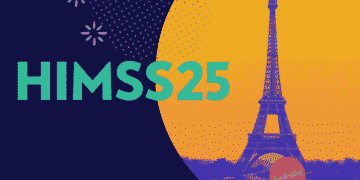Adobe’s vision for mobile creativity
On June 19, 2025, Adobe officially introduced a new AI operated camera app project Indigo for iPhones. The app is affected as the next generation’s creative tools, and aims to bring professional photography features directly into the hands of users, using calculation photography and AI-growth in real time.
While Adobe is known globally for its industry standard software such as Photoshop and Literoom, Project Indigo has taken a serious step in real-time mobile photography-the original camera app to a market and some premium third-party participants dominated.
Important features in Project Indigo
Project Indigo is designed for creators who want to catch and edit high quality materials without leaving the phone. Large properties include:
Ai visual recognition
Automatically detects atmosphere-adjusting camera settings in the country, face, little light and fly.
Real -time filter and preset
Literoom and Adobes Sensai AI provide a live preview of the effects inspired by AI.
RAW and DNG format support
Ideal for shooting, finishing in high-quality non-composed formats.
Subject -separation
The depth automatically separates the topic from the background to edit or activate smart blur.
Literoom -integration
Basically, connect with literoom mobile for continuous editing and backup.
Designed for iPhone. Strategic focus
At the moment exclusive to iOS, Adobe has targeted the iPhone Creative Community for its first rollout. This decision matches it:
Apple’s consistent camera -machine and advanced sensor
A strongly installed basis between digital creators, affected and designers
Appendic performance with Apple’s nerve motor for real -time AI tasks
Adobe has not yet confirmed an Android version, but internal sources suggest it may come in 2026.
Why does it matter | the emergence of calculation photography
Calculation photography uses software algorithms to improve images outside the hardware. Apple, Google and Samsung have used facilities such as night mode or magic eraser.
Adobe’s approach is different: Instead of fixing images only after they are taken, the project increases them before and during the Indigo shot, effectively becoming a truly creative accessory.
It indicates a change in camera-E-catch unit from the camera-e-junction.
How does it compare Apple’s camera app
Feature | Apple Camera | Adobe Indigo |
Real-Time AI Filters | No | Yes |
Lightroom Integration | No | Yes |
RAW Format Support | Yes (ProRAW) | Yes |
Scene Recognition | Limited | Advanced |
Custom Creative Control | Basic | Extensive |
Project Indigo isn’t trying to replace Apple’s simplicity it’s built for users who want creative freedom and control, typically reserved for DSLR or mirrorless workflows.
Adobe’s ecosystem benefits
- Project Indigo connects directly to Adobe Creative Cloud, which means:
- Synchronize all images immediately on literoom mobile.
- Editing can start in camera and end in Photoshop or Lightroom.
- Sky storage and tagging make the outfit easy for professionals.
During shooting, editing and sharing position adobe, it is in the form of end-to-end one-stop mobile photography solution.
Availability and launch timeline
Adobe has opened premature access to Project Indigo Beta through private registration, targeted to photographers, materialmakers and design people. A comprehensive public release is expected by the end of 2025.
Interested users can sign updates for updates through the Adobe Creative Cloud app or official website.
Insight Tech Talk Techway
With the Project Indigo, what means to be creative on Adobe Mobile, it defines again. This is not just another filter app, this is a powerful, a wide tool for serious photographers and creators who want power as a DSLR in the pockets.
By targeting the iPhone users and constructing the lightroom ecosystem, Adobe Indigo positions as a professional option for Apple’s standard camera.
Follow Insight Tech Talk
For real-time updates on AI, mobile photography, and emerging creative tools:
- Instagram: @InsightTechTalk
- LinkedIn: Insight Tech Talk
- Twitter (X): @InsightTechNow













































